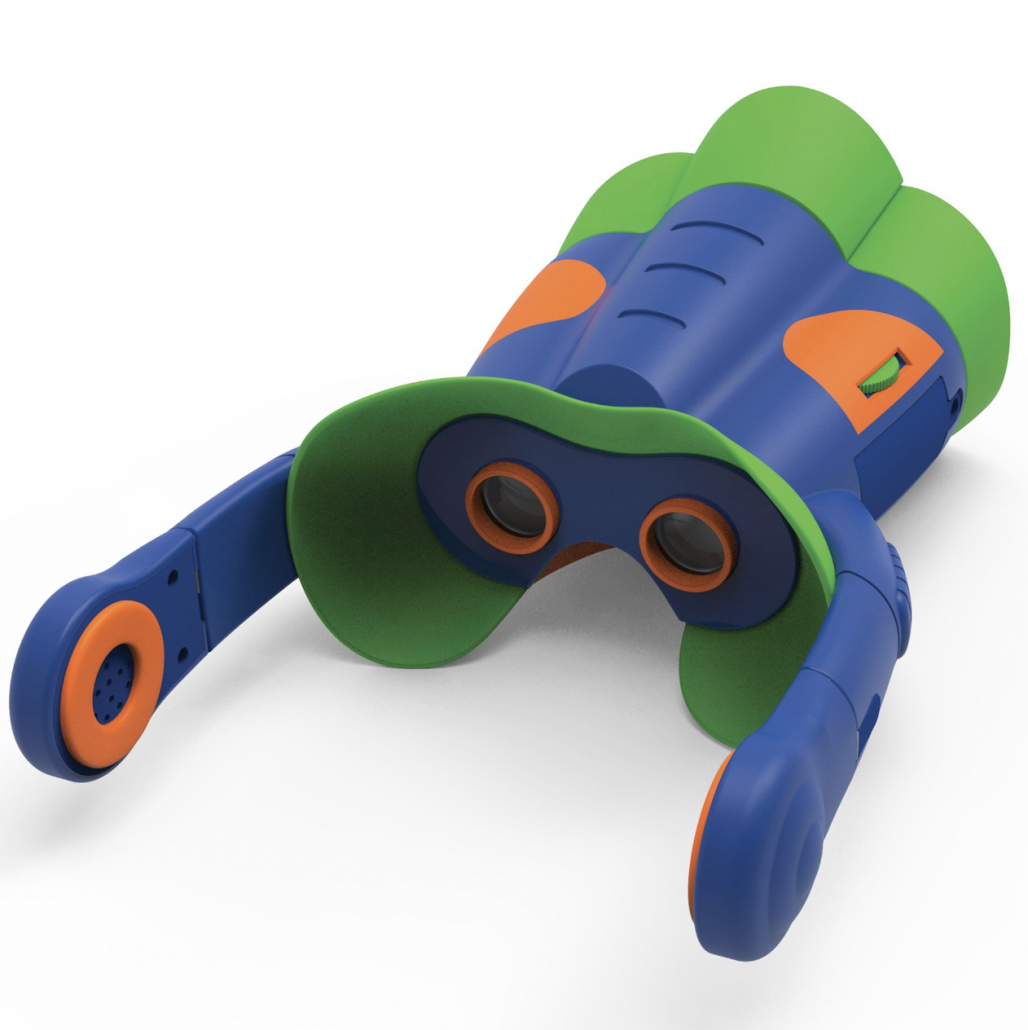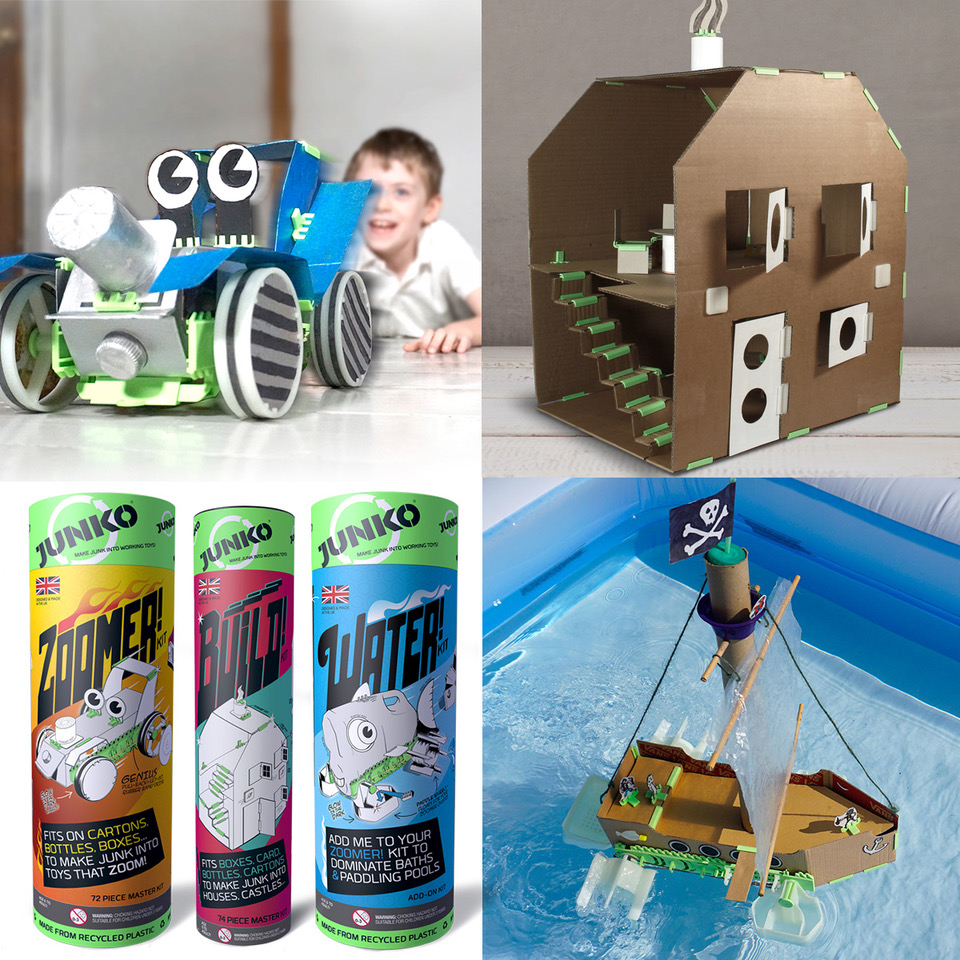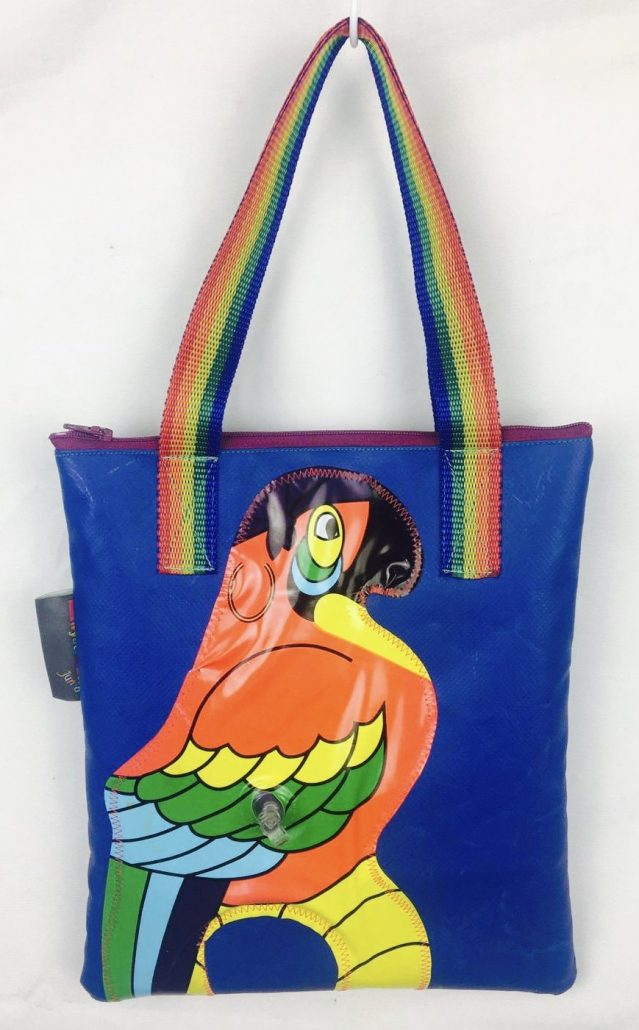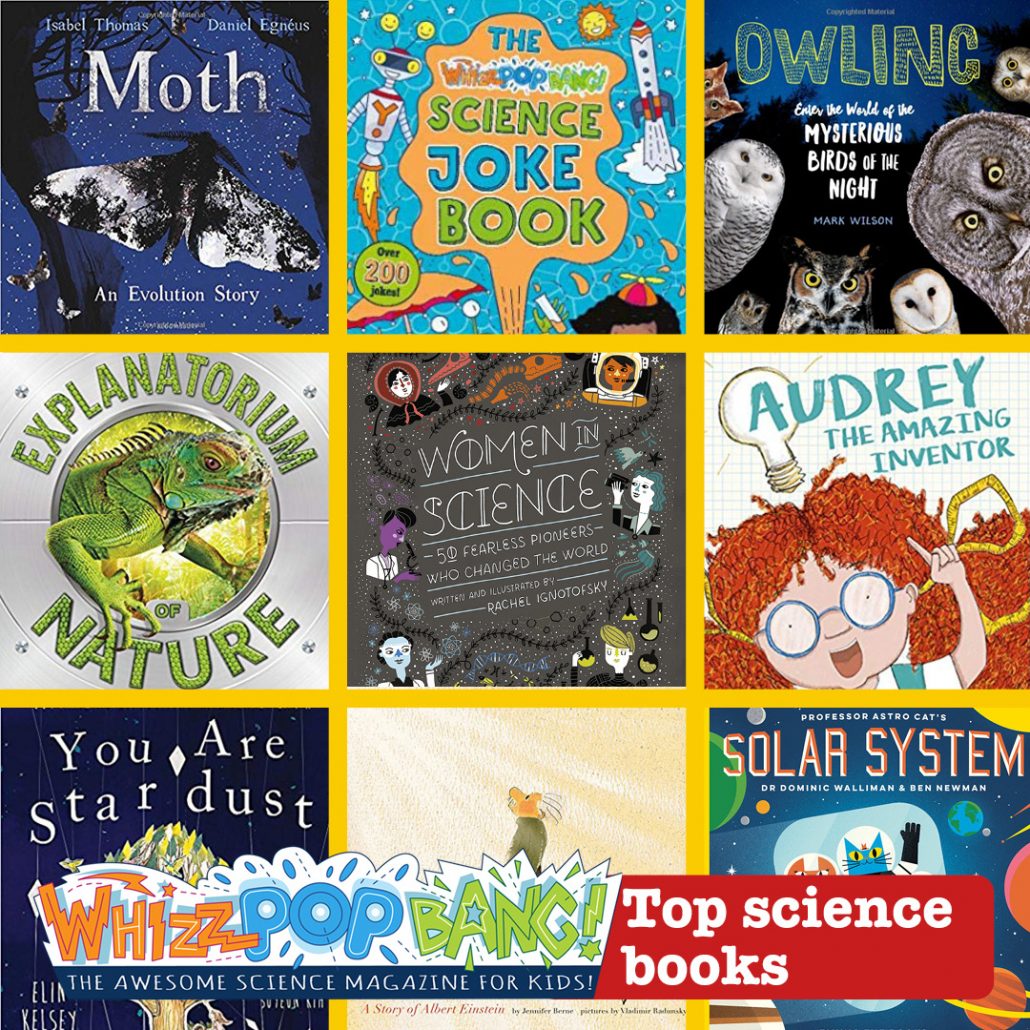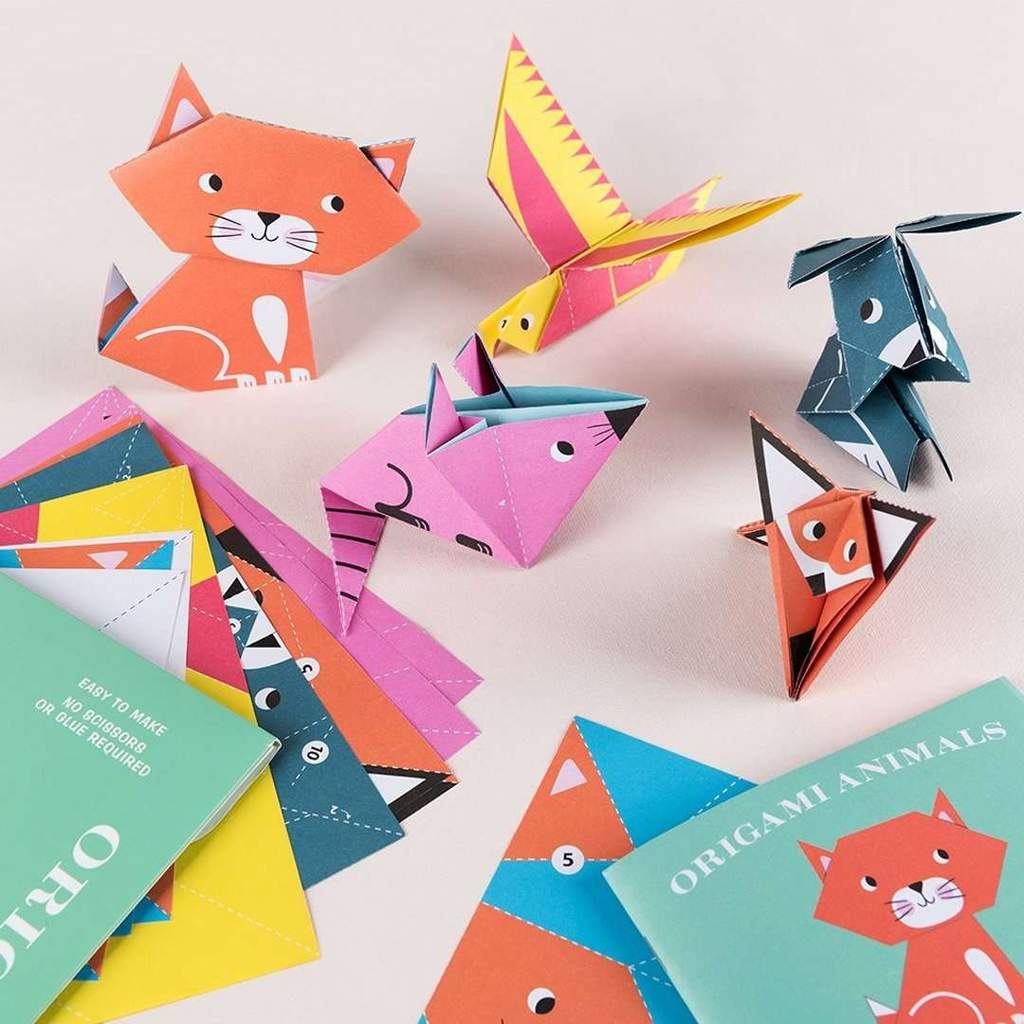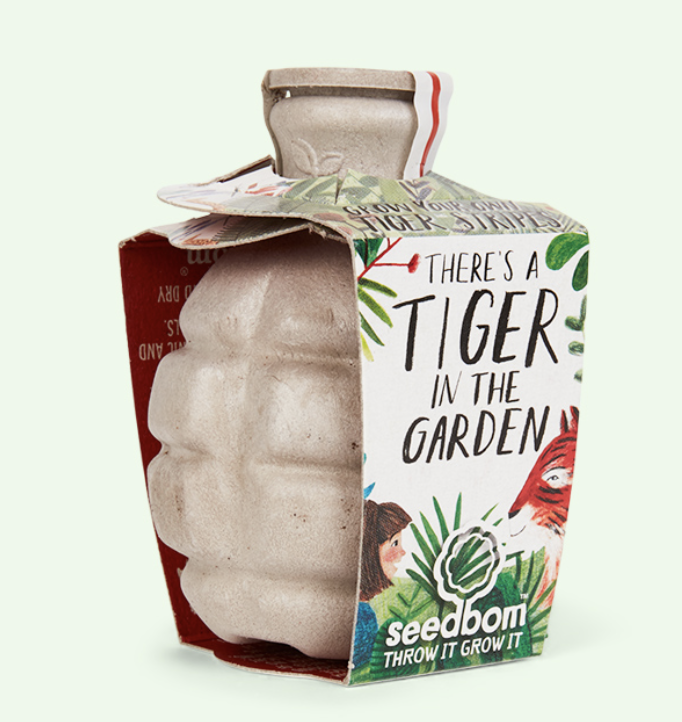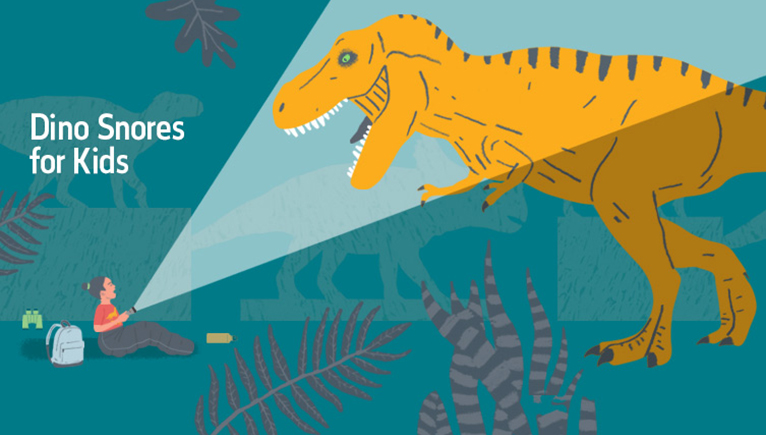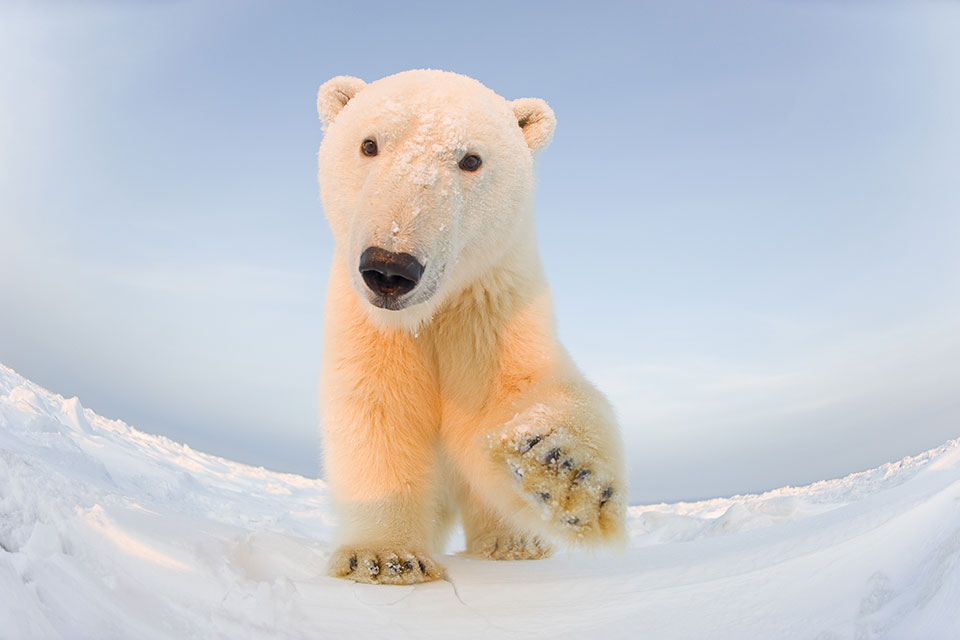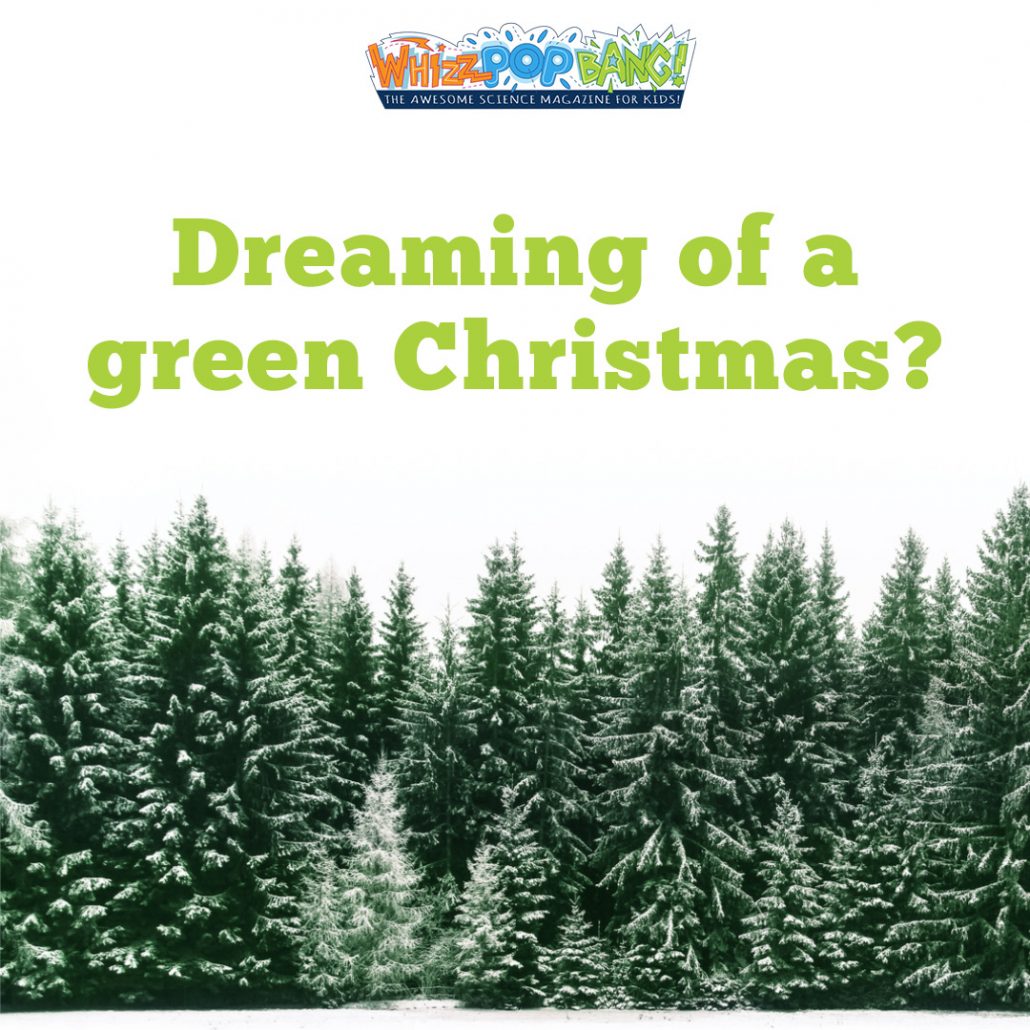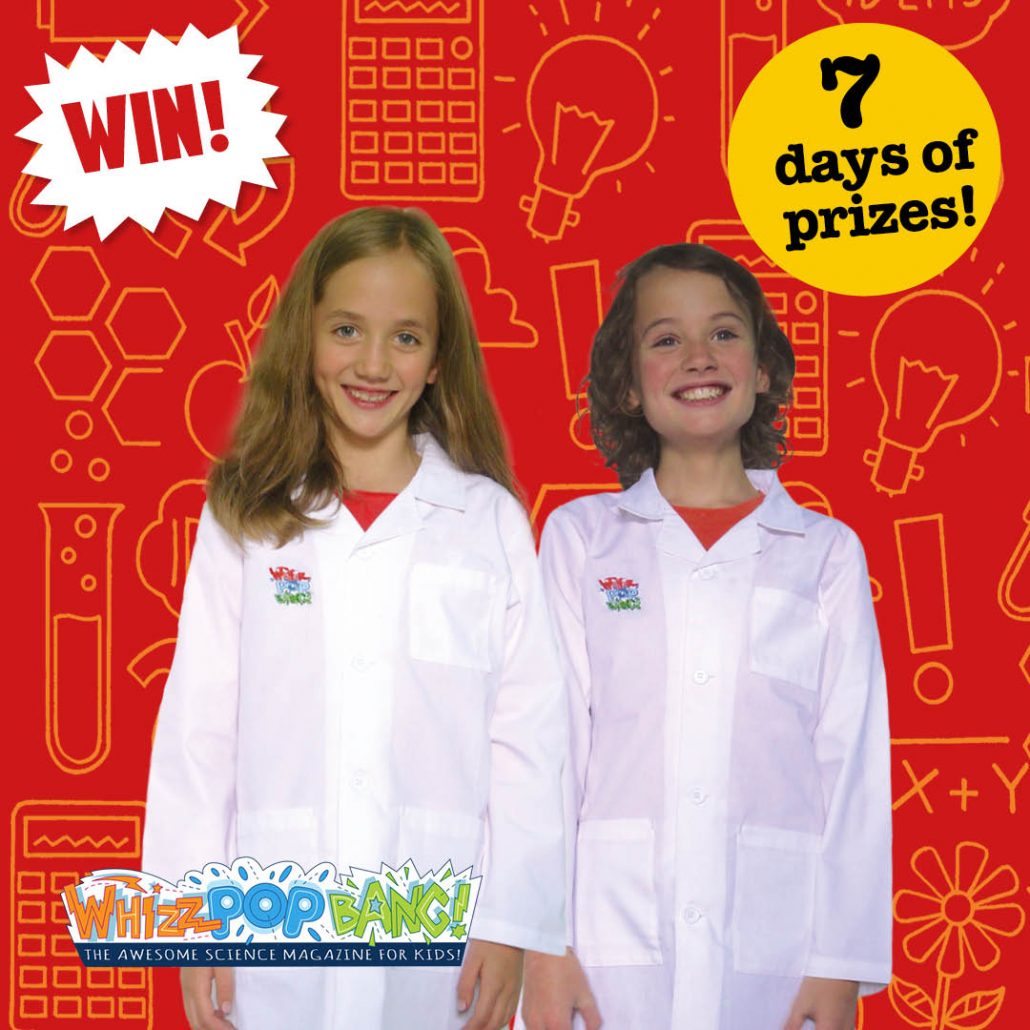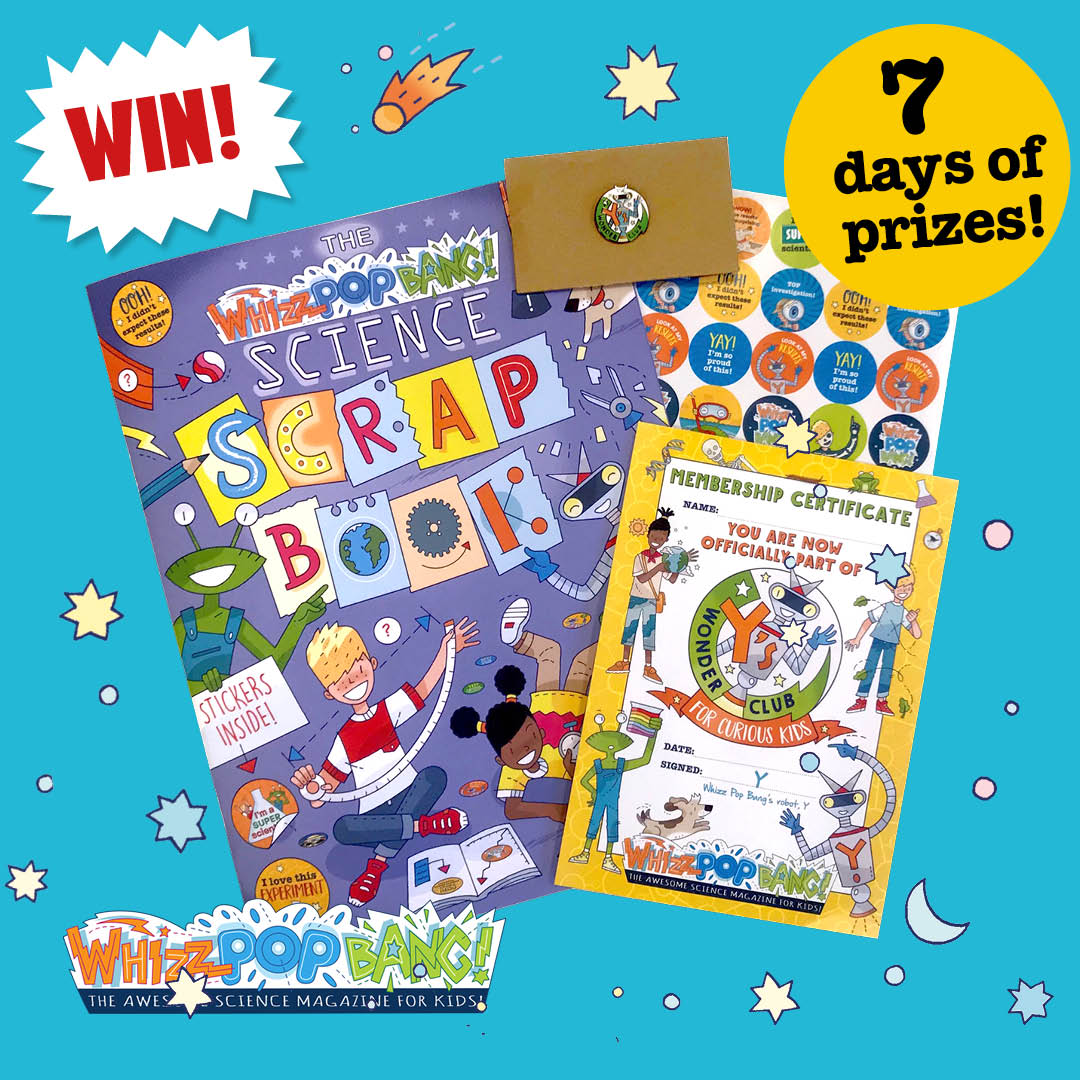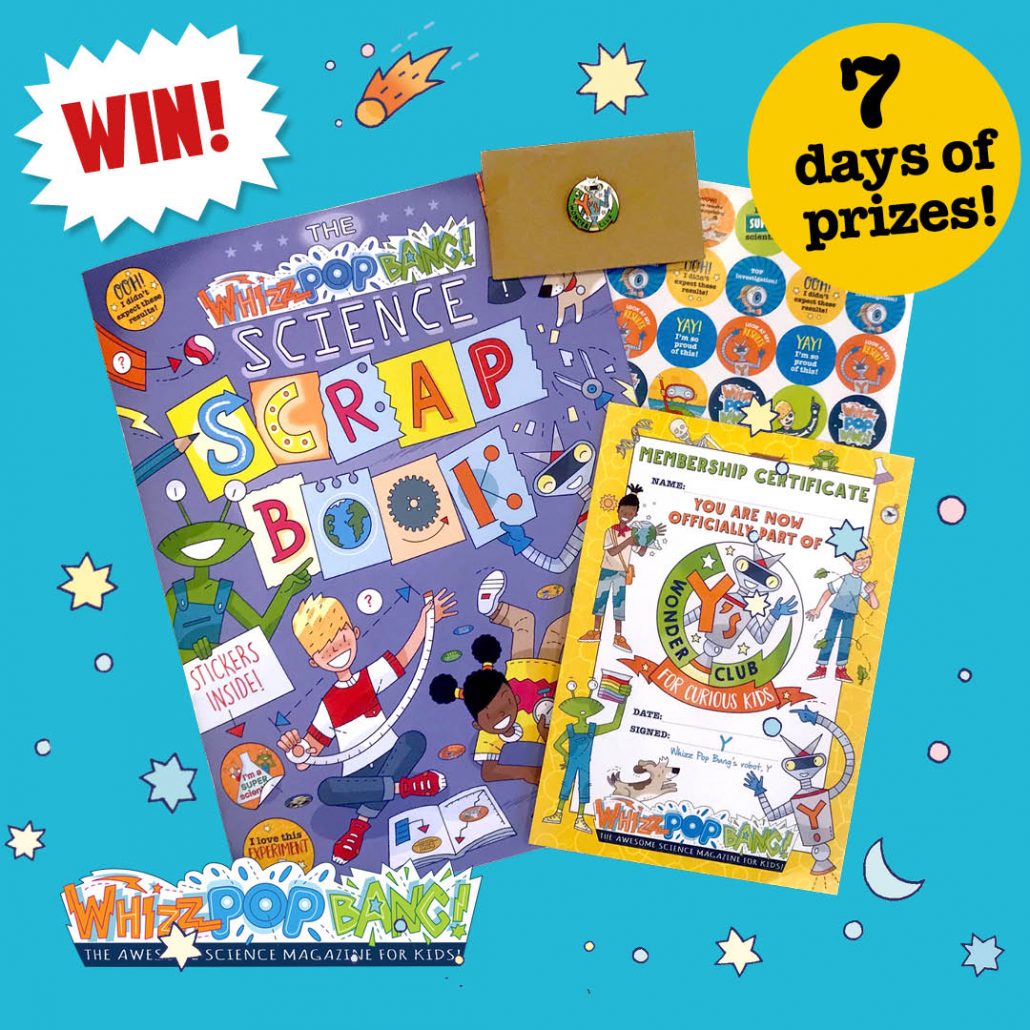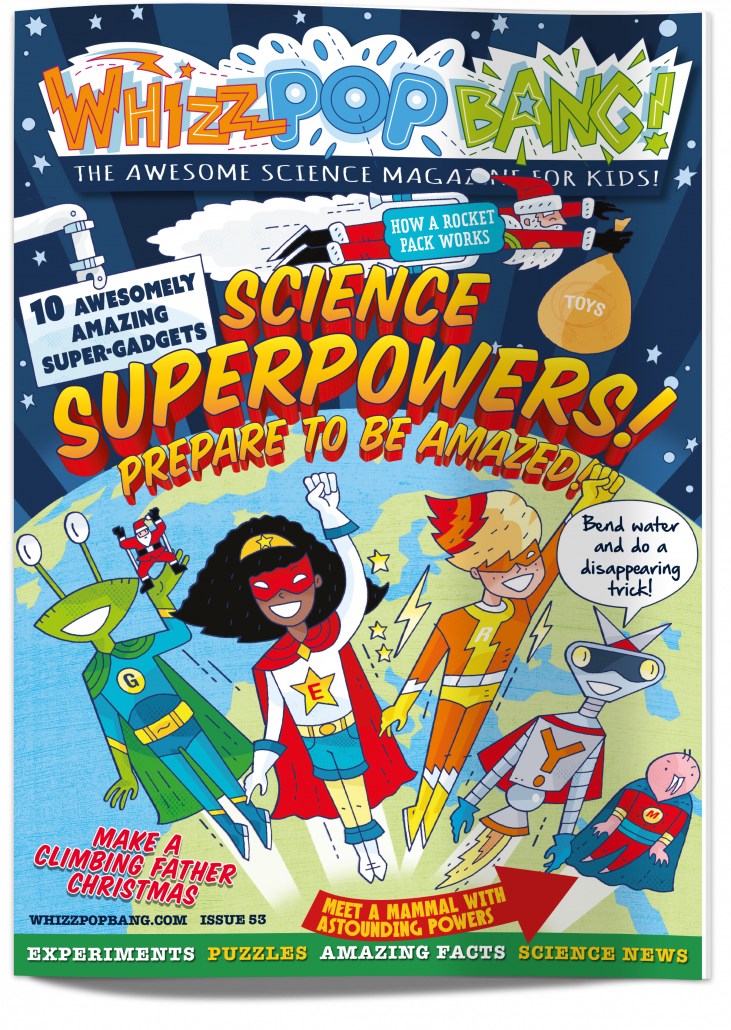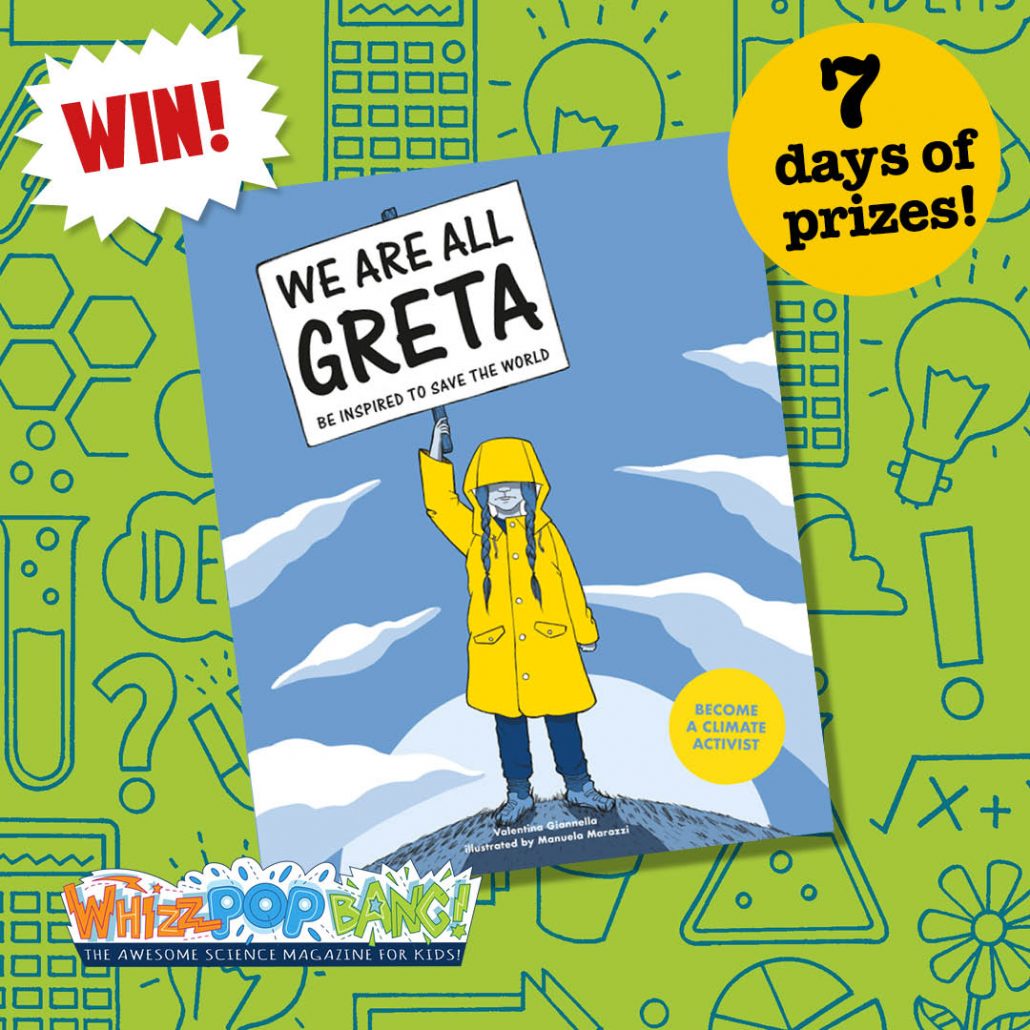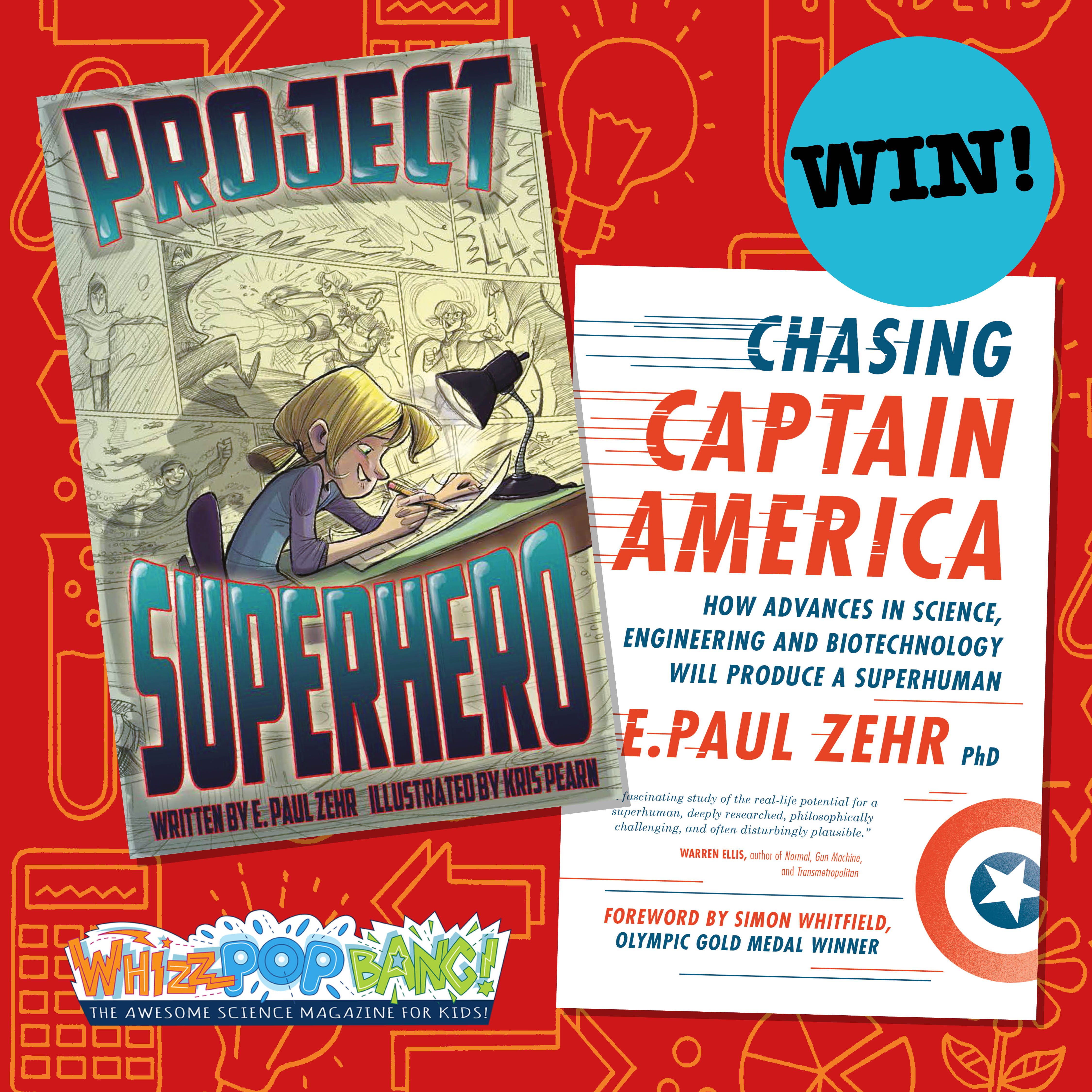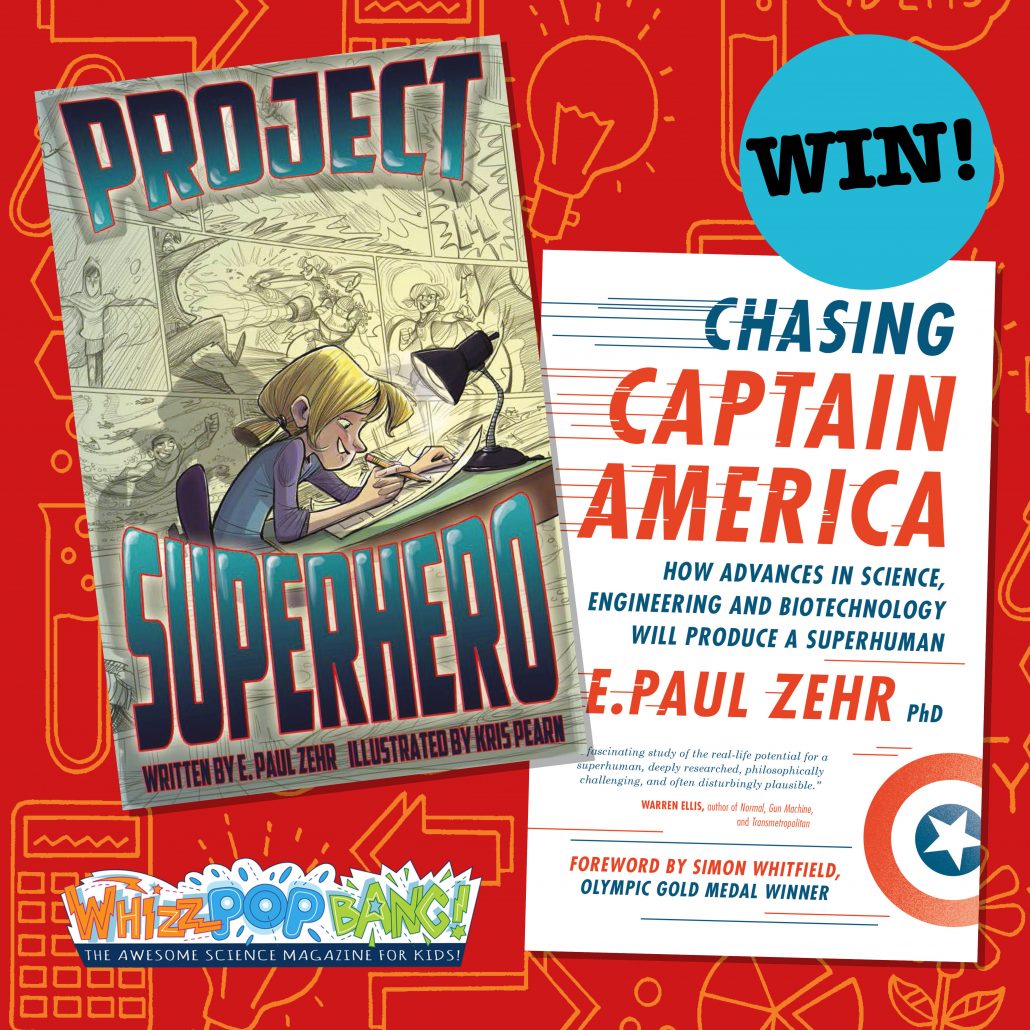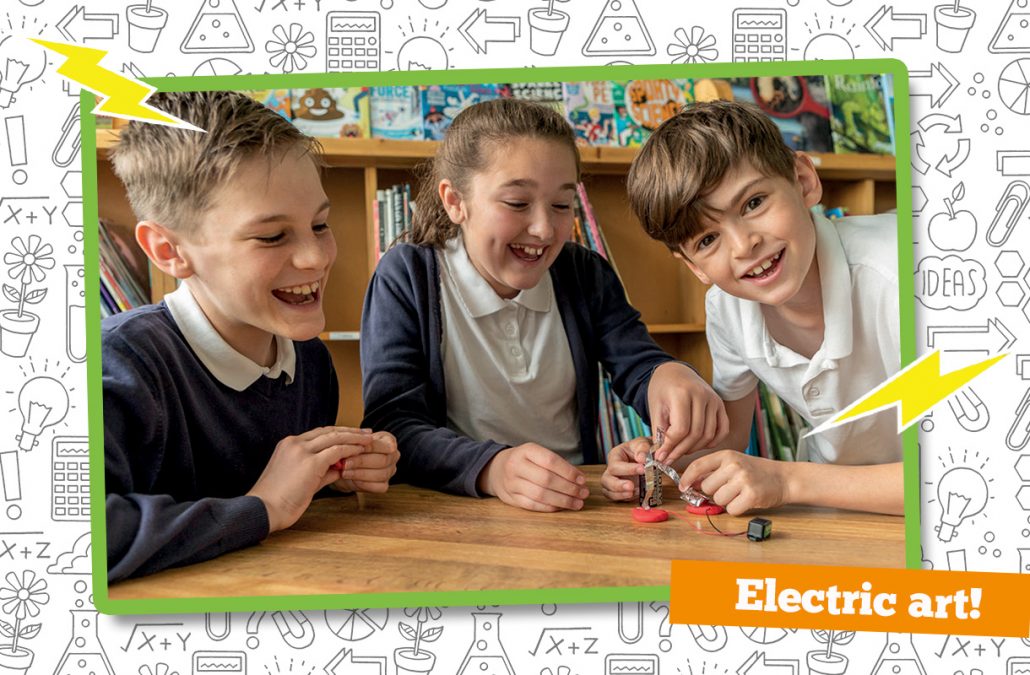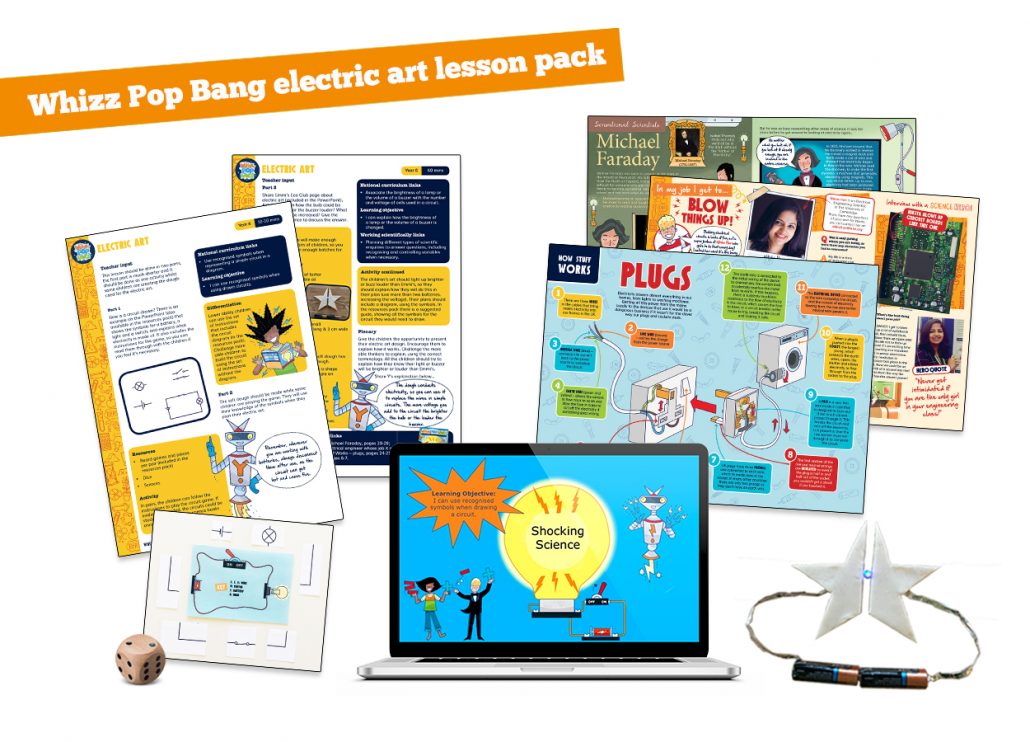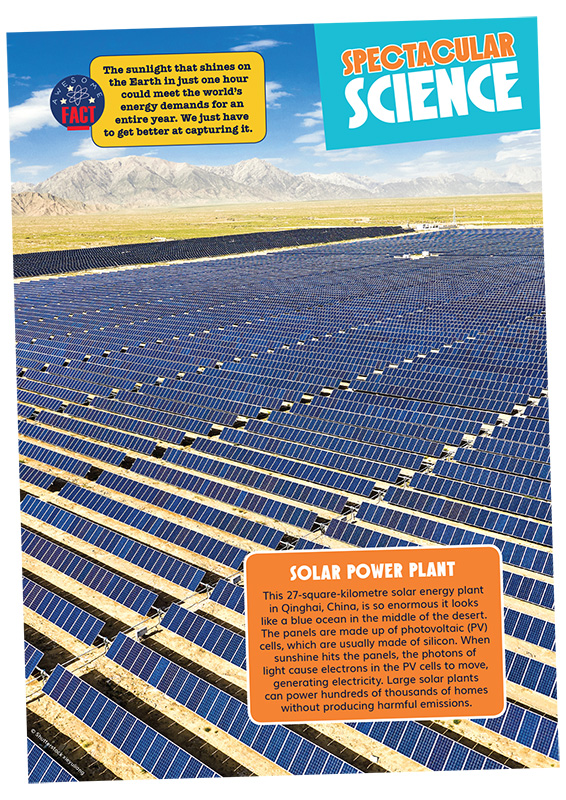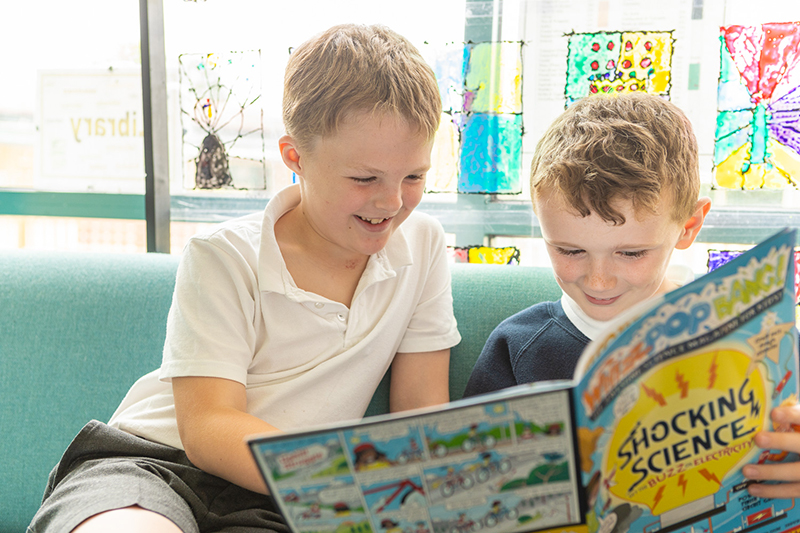Now that schools are closed, have you become a home educator overnight? Whizz Pop Bang is the world’s most awesomely amazing kids’ science magazine, bursting with hands-on experiments, facts and fun, and we want to help you and your children with the huge transition that many of us face.
Here are some FREE science activities and experiments to help you entertain, excite and educate your year 6 child! Meet an electrical engineer, discover invisible germs in a bacteria investigation, read about the father of electricity, Michael Faraday, play two bacteria games and design a bridge!
Our experiments are designed for children from 6 to 12, but this list of experiments is particularly perfect for year 6, P7 (Scotland) and 10 year olds and 11 year olds as they tie in with the relevant National Curriculum objectives and topics.
Some of these activities, including all reading comprehensions, were originally designed as A3 magazine spreads, so text may appear too small when printed at A4. They work really well on a tablet or monitor, or you may need to print them on two pages of A4 if your printer allows.
If you have any comments or questions about our free year x science experiments and reading comprehensions, please leave a comment for us. Or do you have any science homeschool ideas or general home educating ideas for 10 and 11 year olds? We’d love to hear from you!
Interview with an electrical engineer reading comprehension
Building electrical circuits is loads of fun and Nikita Hari gets to do that every day, as she’s an electrical engineer. She explains why she become an electrical engineer, all the obstacles she overcame and gives advice to young scientists.
This downloadable reading pack includes:
– A reading spread about electrical engineer Nikita Hari for you to print or for your child to read on a tablet.
– Reading comprehension question sheet and answer sheet.
Topic links: Year 6 Electricity, P7 Electricity
Mouldy bread bacteria experiment
Investigate and observe how much mould and bacteria develops when happens when slices of bread are rubbed with clean hands and dirty hands. Children can set up their own investigation and make sure it is a fair test.
This experiment can be found here or downloaded below.
Topic links: Year 6 Living things and habitats, P7 Body systems and cells
Interview with Michael Faraday reading comprehension
Discover why we would all be in the dark if it wasn’t for ‘Father of electricity’, Michael Faraday. Find out how he got a job in the Royal Institution as Humphrey Davy’s assistant and how his fascination for electromagnetism led to the invention of the world’s first electric motor and the dynamo.
This downloadable reading pack includes:
– A reading spread about sensational scientist Michael Faraday for you to print or for your child to read on a tablet.
– Reading comprehension question sheet and answer sheet.
Topic links: Year 6 Electricity, P7 Electricity
Bacteria invasion game
Play a fun printable game, complete with counters and tokens, that shows how bacteria can spread.
NB If you can’t print double sided, just print the first page of the file named ‘tokens-double-sided’
Topic links: Year 6 Living things and habitats, P7 Body systems and cells
Bacteria battle cards
A printable card game that pit several strains of bacteria head-to-head.
Bonus activity: extremophile puzzle!
Topic links: Year 6 Living things and habitats, P7 Body systems and cells
Design a bridge
Make a beam bridge and a suspension bridge, then design your own bridge with this engineering challenge.
You will need:
Lego
Coins
Two chairs or stools
Plastic pot
String or wool
Are you home educating children in other year groups? Find more free resources here:
Free science activities for year 2 and P3
Free science activities for year 3 and P4
Free science activities for year 4 and P5
Free science activities for year 5 and P6


